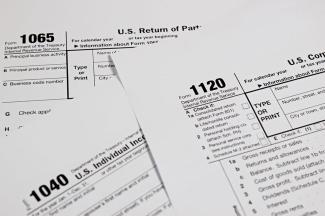Financial statements are a critical tool that companies use to communicate their financial performance and position to stakeholders, including investors, creditors, and regulators. However, because financial statements are prepared by management, there is a risk that they may be inaccurate or incomplete. To mitigate this risk, companies engage independent auditors to examine their financial statements and provide assurance that they are accurate, complete, and comply with accounting standards. In this blog, we will examine the process of auditing financial statements and the key considerations for auditors.
The Audit Process
The audit process typically begins with the auditor obtaining an understanding of the company's business and operations, as well as its accounting policies and internal controls. This understanding helps the auditor to identify areas of higher risk and tailor their audit procedures accordingly.
Once the auditor has obtained an understanding of the company, they will begin testing the company's financial records and transactions. This may include performing tests of controls, such as examining the company's policies and procedures for recording transactions, or substantive tests, such as examining the company's bank statements or inventory records.
The auditor will also review the company's financial statements, including the income statement, balance sheet, and statement of cash flows, to ensure that they are presented fairly and in accordance with accounting standards. If the auditor identifies any issues with the financial statements, they will work with the company's management to make adjustments as necessary.
At the conclusion of the audit, the auditor will issue an audit opinion, which is a written report that provides assurance to stakeholders that the financial statements are accurate, complete, and comply with accounting standards. The audit opinion typically includes a statement of the auditor's responsibilities, a description of the audit procedures performed, and the auditor's conclusions on the accuracy and completeness of the financial statements.
Key Considerations for Auditors
When conducting an audit, auditors must adhere to several key principles and considerations to ensure that they provide high-quality, objective assurance. These include:
Independence: Auditors must be independent from the company being audited to ensure that they are free from bias or undue influence.
Professional skepticism: Auditors must maintain a skeptical attitude throughout the audit process to ensure that they do not accept management's assertions without question.
Materiality: Auditors must consider the materiality of any issues they identify during the audit to determine whether they are significant enough to impact the overall accuracy of the financial statements.
Risk assessment: Auditors must identify and assess the risk of material misstatement in the financial statements to ensure that they tailor their audit procedures to areas of higher risk.
Conclusion
Auditing financial statements is a critical function that helps to ensure the accuracy, completeness, and compliance of a company's financial reporting. Auditors play a key role in providing independent assurance to stakeholders that the financial statements are free from material misstatement. To ensure that they provide high-quality, objective assurance, auditors must adhere to key principles and considerations, including independence, professional skepticism, materiality, and risk assessment. By doing so, auditors help to promote transparency and confidence in the financial reporting process.



